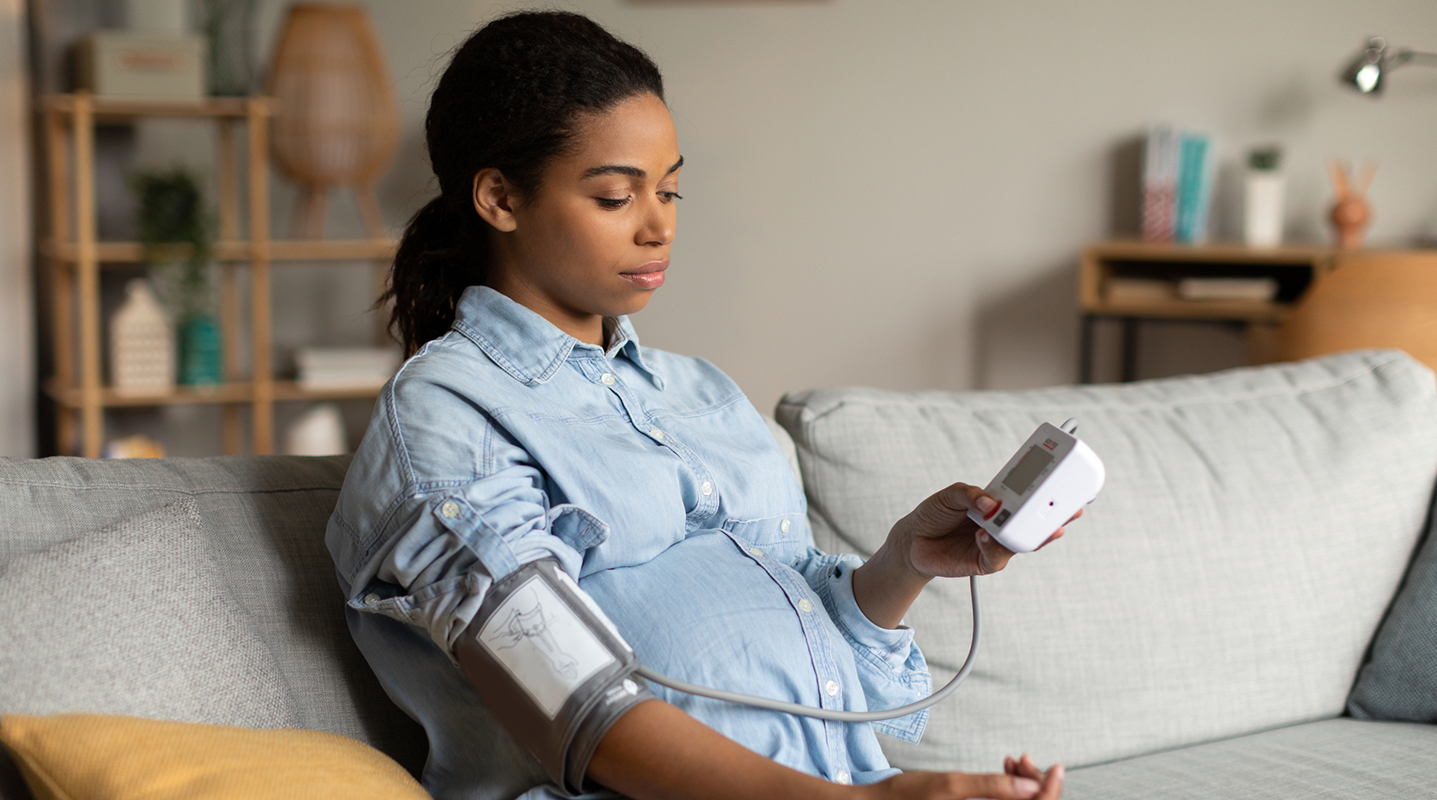Hypertension During Pregnancy
February 21, 2023

Hypertension (high blood pressure) occurs when the force of blood flowing through your body is too high. At every appointment during your pregnancy, your doctor will measure your blood pressure. It’s a quick test that can mean a lot to you and your baby’s health. If your blood pressure is too high, it can put you both at risk of serious health complications.
What is considered high blood pressure in pregnancy?
During pregnancy, your blood pressure should only elevate slightly above what’s normal for you. The range of your blood pressure readings indicates your heart health and the potential health of your baby. Your doctor might make recommendations to help manage your blood pressure based on your blood pressure readings.
- Normal blood pressure is below 120 / 80 mmHg (millimeters of mercury). You won’t need any changes to your care with normal blood pressure.
- Elevated high blood pressure is between 120 – 129 / 80 mmHg. Your doctor might recommend you avoid salt and caffeine and get light exercise every day.
- Stage 1 hypertension is between 130 – 139 / 80 – 89 mmHg. Your doctor might want to monitor your blood pressure more closely if it is this high. They might recommend you take medicine like baby aspirin, get more exercise and eat healthier to help control your blood pressure.
- Stage 2 hypertension is over 140 / 90 mmHg. Your doctor may give you medication to control your blood pressure and might take other steps to monitor your health during pregnancy.
What causes hypertension during pregnancy?
When you are pregnant, you have extra blood circulating in your body that you share with the placenta and with your baby. Mothers carrying multiple babies (twins or triplets) have even more blood circulating. This extra blood can sometimes raise your blood pressure. You can lower your risk for high blood pressure by:
- Maintaining a healthy weight
- Ensuring you have a healthy blood pressure before becoming pregnant
- Staying physically active
- Getting plenty of sleep
- Avoiding smoking and drinking alcohol
Sometimes, there is no way to avoid high blood pressure during pregnancy, even if you are healthy and fit. But your doctor can work with you to keep your blood pressure as low as possible.
What are the risks of high blood pressure in pregnancy?
High blood pressure can cause health problems for you and your baby. These complications can include:
- Decreased blood flow to your placenta
- Placental abruption (when the placenta breaks from the wall of the uterus, causing severe bleeding)
- Slow growth in your baby
- Preeclampsia, a condition that can damage your kidneys, heart, lungs and brain
- Increased risk of heart disease later in your life
- Premature birth
- Higher risk for heart attack and stroke
However, it is important to remember that high blood pressure often causes no problems during pregnancy. By monitoring your health through blood pressure tests and urinalysis, your doctor can help you prevent complications.
At Memorial Family Birthplace, we have board-certified OB/GYN and maternal-fetal medicine physicians that work with you to monitor and manage your blood pressure throughout your pregnancy and postpartum period. We are dedicated to protecting you and your baby and will do everything we can to keep you both safe and healthy.
Learn more about our comprehensive high-risk pregnancy services.
Patricia's Experience and Treatment with Preeclampsia




